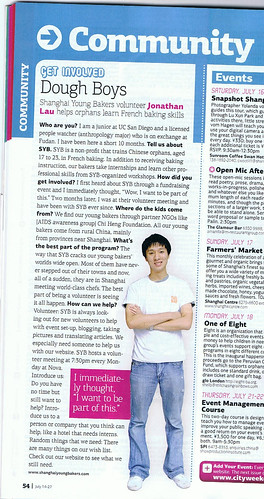Ever since I met John Kobara back in the summer of 2010, he has been my role model and a look at his biography easily explains why.
“In 2009, John was appointed Executive VP and Chief Operating Officer for the California Community Foundation (CCF). He is responsible for all of the development, marketing, administrative, grantmaking, civic engagement, and donor relations functions for the 48th largest foundation in the nation. The California Community Foundation is L.A.’s foundation. CCF has been around since 1915, with more than $1 billion in assets. Since 2004, CCF granted more than $1 billion in grants to non-profits and charities in Los Angeles and beyond. CCF specializes in assisting high net worth families, individuals, corporations and non-profits to pursue their philanthropic visions.
For more than thirty five years, John has been leading and managing diverse and complex non-profit and for-profit organizations. John has been engaged in three successful start-ups traversing a broad spectrum of industries during his career. He regards himself as a social entrepreneur who specializes in cause marketing and social advocacy. Prior to his appointment at CCF, John was CEO of the CK12 Foundation, a nonprofit technology startup that provides no-cost textbooks to K-12 market. He also served as President/CEO of Big Brothers Big Sisters of Greater Los Angeles , Senior VP of Online Higher Education for Sylvan Learning Systems Inc, President/CEO of OnlineLearning.net, Vice Chancellor of External Affairs at UCLA, Executive Director of the UCLA Alumni Association, and Vice President and General Manager of Falcon Cable TV.”
Taken from http://jeknetwork.typepad.com
The man makes success look easy and to top it all off is incredibly humble about it. When Kobara offered me the opportunity (on Facebook no less) to discuss and plan my future with him, I immediately jumped at the chance. I completed his SWIVEL worksheet as honestly and completely as possible and sent it off to him. In a week, I was on the phone with Kobara, who was calling all the way from Los Angeles, talking about marketing, networking and me. Below are some of ideas and suggestions that Kobara gave me.
Marketing vs advertising
Kobara started off by explaining to me the difference between marketing and advertising, words which I use interchangeably when in fact they are two very different things. Marketing is the overall strategy of selling the product, therefore it encompasses advertising. Advertising, which falls under marketing is the way that you get the word out.
Marketing Homework
I was told to start looking critically at the products and companies that I had an interest in, in essence, create my own case studies. Kobara suggested I look at the companies’ cost of acquisition, which could be roughly determined by dividing the sales numbers by the marketing costs. The cost of acquisition is how much a company spends to get a sale, by comparing cost of acquisition across companies, I could begin to ask myself, “why is one company’s cost of acquisition higher or lower than another’s?” and most importantly “what would I do differently if I was heading up the company’s marketing efforts?”
In addition, I was advised to create a marketing binder that would catalogue marketing things of interest. In this case, interest could mean both positive and negative reactions. Understanding why I love or hate a certain marketing approach is crucial to emulating success and avoiding mistakes.
Think about coffee and tea
Kobara noted my interest in coffee and tea; and took these two things and ran with it. He challenged me to start thinking about how coffee and tea is sold from the supermarket to the café. How are different brands shelved differently in supermarkets? What makes someone choose Starbucks over Peet’s? In addition, he suggested take surveys and ask questions to customers and employees in order to understand the product. Putting together my interests in this way seems obvious in hindsight but I would not have been able to view my favorite beverages in this manner had Kobara not pointed it out.
Little did I know that the usage of coffee and tea as examples was a lesson in of itself. “Preferences over options” was Kobara’s advice, because if I chose options, I would quickly find myself hating my work and doing a subpar job. In addition, at this point in my life, I am short on experience so my next best selling point is my enthusiasm. Approaching a company by saying “I love your product for this, this and this reason” will make me stand out in a group of applicants. Not to mention, you cannot market what you do not believe in.
Getting credentialed
If I wanted to learn more about marketing as well as get some credentials, Kobara suggested I take some marketing certificate courses. He mentioned that UCLA extension and USC offer such courses, and I bet that UCSD extension does as well, meaning that I could get certified while still attending school.
Networking
“Keep hopping” is what he told me in regards to networking, and by that he meant that I should keep meeting people without regard for who they are, and who are different from me. The rationale behind this was that if I was selling tea, I would be selling it to anybody who likes tea and not just people who were like me.
As for how to ask people for help, Kobara told me that if I was honest, people would help me if I asked. In addition, I could preemptively ask people if they needed help rather than wait. This way I would be able start reciprocal relationships. Relationships need to be formed organically and honestly in order to be enduring.
Finally he stressed the need for me to do my homework before asking questions. Better informed questions would be better received and more likely to be answered.

No comments:
Post a Comment